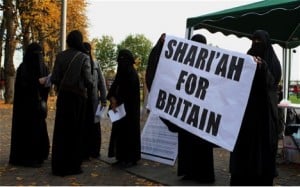Back in July, I wrote about Afshan Azad’s abuse by her father and brother. When they threatened to kill her for having a Hindu boyfriend, she fled to London; her father and brother were questioned and charged by police. Though Azad attempted to drop the charges, her brother and father were tried in court last week. She did not show up to court to testify against them.

Coverage around Azad’s court case is particularly sensationalized because of her work with the Harry Potter films. The Sydney Morning Herald republished a Daily Mail story and titled it, “Harry Potter actress Afshan Azad beaten and abused,” as if the outlet was covering her actual assault (which happened in May), rather than the court case. The Herald followed the Daily Mail’s initiative; their title was, “Harry Potter actress was beaten and branded a prostitute by her brother after dating man ‘who was not a Muslim.’”
The Australian upped the yellow journalism ante by publishing the headline, “Harry Potter actress Afshan Azad ‘missing’ in domestic violence case,” making it appear as if Azad has gone missing instead of not showing up to a trial. The Australian changed the title from the The Times’ original title, “Harry Potter star backs out of ‘honour crime’ trial,” which is a more accurate description of the case.
Part of the sensationalism of the media surrounding the case involves the details. Specifically, the “Muslim” details. The fact that Azad’s family is Muslim is emphasized in everything from the titles to the highlighted case details. To read most of the articles, one would believe that her family’s faith is more important than the fact that her father and brother assaulted her for dating someone they didn’t approve of.Articles in The Mirror, The Daily Mail, and the vastly more trustworthy Guardian report that the reason for her failure to testify is fear. Her statement to the lawyer of her brother and father was the following, “I dearly love my father and brother. The proceedings have caused me no end of distress and if it goes ahead it will make things much worse for me.” The court heard the following (taken from The Australian):
“That apparently is disapproved of by her family, who are Muslim,” said the barrister. “Specifically she speaks not only of assault but of threats to kill made jointly by her father and brother.”
Mr Azad had been woken on May 21 by his son shouting: “Sort out your daughter, she is a slag,” Mr Vardon said. “He continued in disputed Bengali to say ‘just kill her’ and the assault continued in front of him. There was a discussion where she was being called a prostitute.”
Reading from the victim’s statement, Mr Vardon said: “My father began saying he would do it, a reference to kill her, as he did not want his sons to have her blood on their hands and he would do time for it. It was at that point that Miss Azad began to feel very scared.
“She made a statement to the police on May 22, she having apparently been so scared of her family she left her home address via her bedroom window. Part of her version of events was that he was going to force the complainant into a forced marriage of some sort.”
The relationship between stereotypes of Muslims and Azad’s case is illustrated further by the defense of Azad’s relatives. Her family is described as liberal, as evidenced by their support of Azad’s acting career, which would not be “consistent with a conservative Muslim family.” Making it a matter of “conservative” or “liberal” dances around what actually matters, and that is that her family, which is supposed to make her feel safe, assaulted her. Whether or not they are “liberal” does not matter.
Azad’s silence may be for many reasons: she may be afraid of her family, she may be afraid of fanning the flames of Islamophobia, and she could even just be afraid of negative press. But it’s clear that fear is in the driver’s seat when it comes to this case.
Rather than using Azad’s case as opportunity to sensationalize the domestic violence of a film star, it is more timely to initiate a dialogue about stopping culturally justified violence. Azad should not feel like she has to choose between her safety and standing up for herself.













